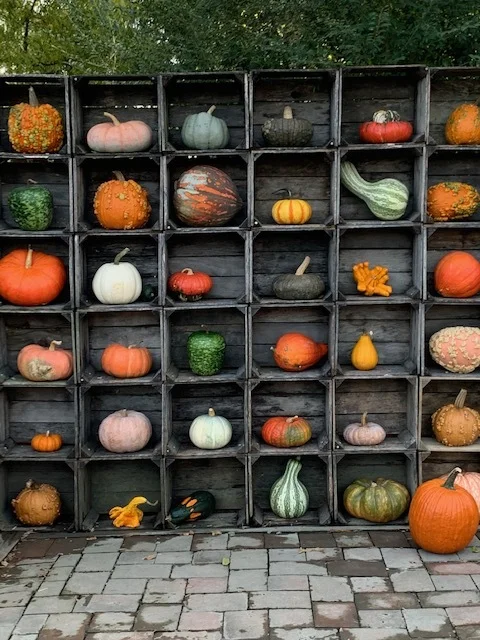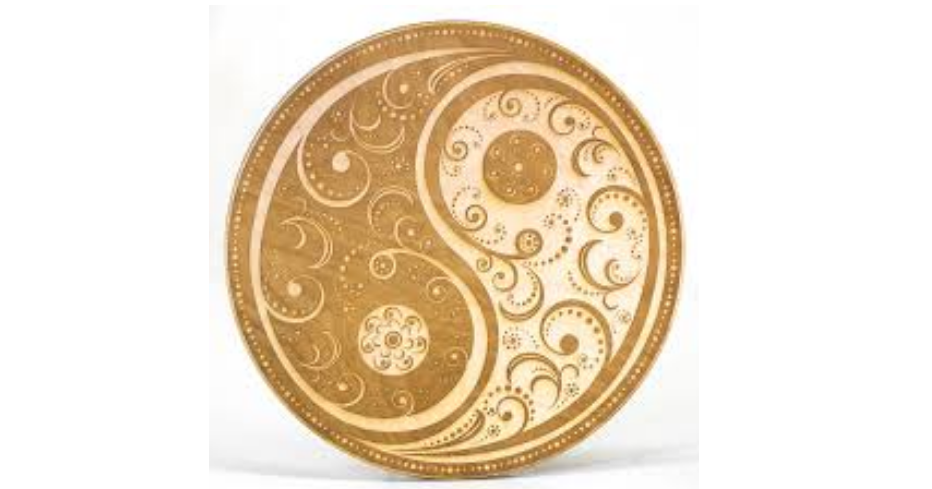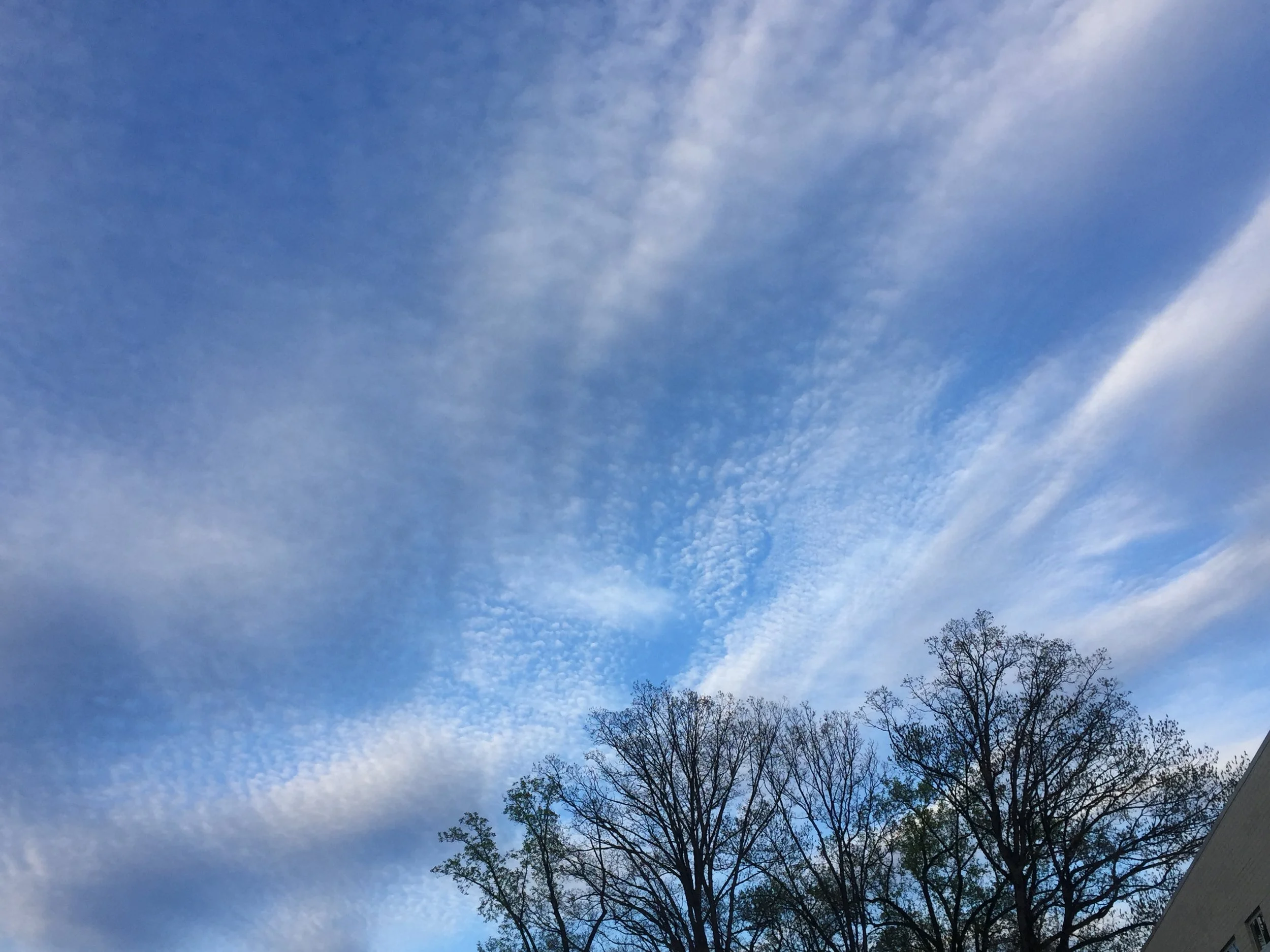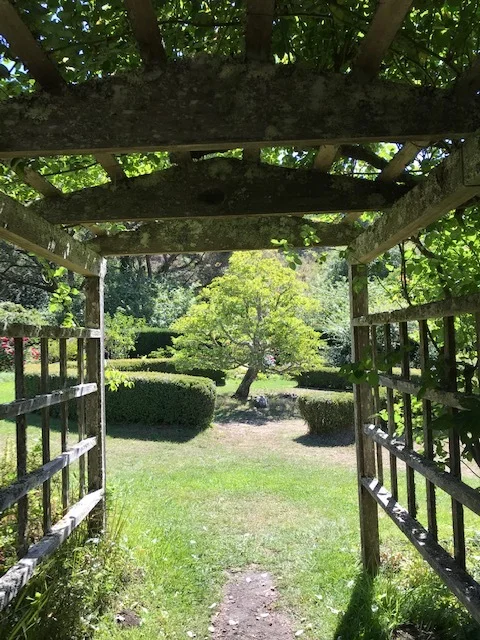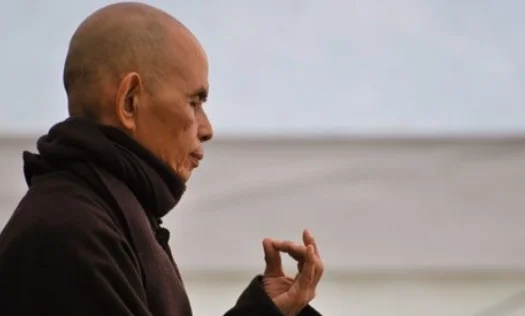I first became aware of the situation facing the Kurds when I visited Turkey around 30 years ago. I would frequently notice the letters “PKK” graffitied on the walls from Istanbul to small villages in the East of the Country. On a number of trips, I would meet local Kurds who quietly would explain the situation to us Western travelers. Since this time, I have tried to follow their situation always with an active interest. During the two gulf wars since and more recently during the civil wars in Iraq and Syria, the ongoing Kurdish situation has frequently reappeared and caught my eye.
Thanksgiving in October . . . and Everyday
Every morning we have 24 brand new hours to live. What a precious gift!” Thich Nhat Hanh
When my heart is heavy, my mind is cluttered, or I’m feeling too reactive, I find it helpful to step back and embrace a moment of gratitude. Without fail, this brief practice results in feelings of more spaciousness, lightness and clarity. Something inside me shifts. So, in preparing for this Monday’s sangha, I wanted to share, for the second time, a reflection on gratitude from Brother Phap Hai (Dharma Ocean), a senior monastic Dharma teacher at Deer Park Monastery and board member of the Thich Nhat Hanh Foundation. Although written on Thanksgiving Day 2016, it is relevant to all of our days!
Photo credit: Bella Appel
The Second Body Practice
This week Annie & Brigitte will facilitate on the subject of Second Body. What is it and what are the benefits of this practice?
Thay has given us many practices for the sangha to become the environment in which we all feel connected, where understanding and compassion are the base for our relationships. The Second Body practice, is one of these that helps us take care of each other.
Beginning Anew, Nourishment and Healing
In the Plum Village tradition when two people have a conflict they take part in the Beginning Anew practice, a practice that begins with seeing someone's positive qualities, before exploring a conflict. Last week we had the Autumnal Equinox, the day when everything is in balance and day and night are equal. This week we have Rosh Hashanah, the Jewish New Year. It is “a time to celebrate the completion of the year while taking stock in one’s life.”
Honoring Mother Earth
Dear Friends,
To honor Mother Earth this week, I invite you to bring a poem that celebrates nature, our planet, and/or life in general. We can offer these to one another during Monday night Sangha. Below, is the poem I chose, followed by an excerpt from a Love Letter to the Earth, by Thich Nhat Hanh.
The Five Earth Touchings
Dear Friends,
This evening we will enjoy the Five Earth Touchings together (see full text below). The Earth Touchings are a Buddhist meditation practice where we bow down and surrender to the Earth. Also called the Five Prostrates, we join the mind and body to help us "return to the Earth and to our roots, and to recognize that we are not alone but connected to a whole stream of spiritual and blood ancestors. We touch the Earth to let go of the idea that we are separate and to remind us that we are the Earth and part of life. When we touch the Earth, we breathe in all the strength and stability of the Earth, and breathe out our suffering – our feelings of anger, hatred, fear, inadequacy and grief. This is a wonderful practice." (From Plum Village web site).
The Three Complexes
We are so grateful to Sister HaiAn (Sister Ocean) for joining us this Monday. Because of our guest, we will extend our evening to 8:45 pm instead of 8:30
She will share about: The Three Complexes
The contemplation before chanting invites us to "Let the whole Sangha breathe as one body, listen as one body, chant as one body transcending the boundaries of a delusive self, liberating us from the superiority complex, the inferiority complex, and the equality complex." The suffering of inferiority and superiority complexes are easier to understand than that of the equality complex. Join us for an evening of practice to understand the nature of the complexes, ways to practice with them in daily life, and their role in personal and social liberation.
The evening will include sitting meditation, walking meditation, a Dharma Talk, written exercises, and group reflection. Please bring a pen and paper with you.
Showing Up
When we show up and are fully present, the possibilities are limitless. This summer I had a number of experiences that made me reflect on what it means to truly show up. I am the first one to admit that I often confuse the meaning of “showing up” with “doing a lot.” I am, by nature, an extrovert and I love to be out there and experience the world fully. There are many issues that I am passionate about but for me it is impossible to truly “show up” for all them AND be present.
Grasping On to the End of Summer
I am someone who loves summer. I even love DC summers. Bring on the sun, bring on the heat. As summer closes, the days shorten and nights get longer. I have always felt my mood shift and it’s been hard to get excited about pumpkins, ghouls, tinsel or cozy sweaters - albeit fall bike rides do help.
My summers are usually accompanied by travel and one of our family jokes is that almost wherever I end up I usually say “I could stay here for a year.” What I mean by this is that I do not want summer to end and I want to hold onto the moment that I am in and to stop time. As I think about this, it is a very common thought pattern for me when either I have found some happy place or am doing some activity or task and I am really in my element. This grasping and wanting to cling onto such moments has been a constant companion.
Watering the Seed of Vulnerable Self-Expression To Water the Seed of Collective Care
Special Guest Sandra Kim will lead our sangha this Monday.
A sangha that aspires to support its members in becoming free from suffering and realizing our interbeing-ness needs to have a culture of collective care - where all are cared for because all are caring. While at any given moment, who and how we are giving and receiving may be different, we can trust in the sangha to hold us.
Like all aspirations, nurturing a culture of collective care in our sanghas is not easy, particularly in a society that promotes hyper-individualism, consumerism as the cure to all, and work being the only valid activity to focus on. And in our society that expects people to be perfect in order to be acceptable, it can be very difficult for many to acknowledge their own difficult feelings and express their need for support.
The Power of Compassion
This Monday night, Alison will facilitate. She shares:
When I first learned of the most recent double mass shooting in America and the death of innocent children, women and men, my initial response seemed to be one of emotional detachment – just another news story to acknowledge and move on. That’s what it felt like but it wasn’t. When I really allowed myself to be “present” with the stories, I knew that my original reaction was merely an attempt not to acknowledge a whole wealth of emotions – fear, pain, sadness, anger, frustration, rage, anxiety – none of which I wanted to feel.
Cultivating Inner Compassion
This Monday night, Laurie Cameron will facilitate. She shares:
I was at Magnolia Grove Monastery with my family one steamy autumn week when Thich Nhat Hanh taught us how to cultivate a heart of living with more happiness. He shared with us that there is no realm where there is only happiness and no suffering, that suffering is a part of our human experience. With mindfulness I have learned to acknowledge, allow and understand my suffering, know that it is part of being human, and meet it with kindness.
Exploring True Love with the Five Mindfulness Trainings
Attention is the most basic form of love - Reflections from a teen retreat
The bread in your hand is the body of the cosmos
As many here know I am a keen cyclist and love nothing more than getting out on my bike and heading for the proverbial hills. My last ride was with a close friend who I go out with frequently. As we get onto the quieter roads it's always a good chance to talk and check in with each other. As part of this conversation he confided that he had been feeling very anxious lately and that the climate change issue was really starting to cause him distress. He is a PhD scientist and said he genuinely felt like the frog in the fable being slowly boiled alive. It was clear that he had been thinking about this deeply which resulted in very real suffering. He did not want to ‘tune it out’ but equally felt powerless to do anything about it.
Relating to Fear in a Different Way
During last week’s Sangha, Annie shared her perspective on the “subtle distinction” between embracing versus suppressing unwelcomed emotions (e.g., anger, jealousy, and fear). As Annie explained, there is a distinction between wanting such emotions to “go back to our store consciousness and stay out of our mind consciousness” with the intention of banishing such emotions forever, which is simply not possible, and treating such emotions with love and compassion, so that our relationship with them is altered in a positive way with less suffering.
How to Love All of Ourself - the Sweet and the Bitter
Many years ago, on a 10-day silent retreat, I had an insightful experience. While sitting in chilly meditation in a hall with 80 other yogis, someone got up an opened a window. Right away, a flash of anger arose in me, and I started telling myself a story about the entitlement of the man who opened the window.
Suddenly, my mind paused and I was able to see my anger arising. I had the realization that my anger was not something I could ever completely eradicate. Something in me had been believing that if I practiced meditation enough, I would be able to live anger-free for the rest of my life.
When I realized that I was never going to be able to be free of anger, a well of grief rose up, and I had to go into my room and wail and sob. I let go of my hidden dream of being free from the "unwholesome" seeds of anger, fear, greed, and delusion. I would never achieve a life of moral perfection.
Special Guest Sandra Kim: Cultivating Deep Togetherness - Even When We Feel Disconnected
Often times what we most remember and cherish from our lives are the moments when we felt deeply seen and cared for - and when others felt deeply seen and cared for by us.
Where we could bring our whole, authentic selves to others and be received in such a way that heals the cracks in our spirit that we didn’t even know was there. Where we are all cared for because we are all caring - giving freely, receiving freely, and inviting in freely.
But too often we are afraid of showing our whole, authentic selves to others. We live in a society that says we must conform to a certain standard of what’s “acceptable”, including how we look, what jobs we have, how we talk, and how we behave. So it can be scary to be different, to live unconventional lives, and to not fit into the system, even if it’s killing us slowly.
Exploring Togetherness
Dear Friends,
Please note that Sandra Kim’s visit is postponed by a week, to Monday, June 24th. We will start laying the groundwork for her visit tomorrow night by exploring the topic of togetherness.
The Plum Village website describes how sangha can play a role in our feeling connected: “In society, much of our suffering comes from feeling disconnected from one another. We often don’t feel a real connection even with people we live close to, such as our neighbors, our co-workers and even our family members. Each person lives separately, cut off from the support of the community. Being with the Sangha can heal these feelings of isolation and separation. We practice together, share a room together, eat side by side and clean pots together. Just by participating with other practitioners in daily activities, we can experience a tangible feeling of love and acceptance.
Thay often says that the sangha is a garden, full of many varieties of trees and flowers. When we can look at ourselves and at others as beautiful, unique flowers and trees, we can truly grow to understand and love one another. One flower may bloom early in the spring and another flower may bloom in late summer. One tree may bear many fruits and another tree may offer cool shade. No one plant is greater, or lesser, or the same as any other plant in the garden. Each member of the sangha also has unique gifts to offer to the community. We each have areas that need attention as well. When we can appreciate each member’s contribution and see our weaknesses as potential for growth we can learn to live together harmoniously. Our practice is to see that we are a flower or a tree, and we are the whole garden as well, all interconnected.”
Over the next week, please ask yourself some questions.
When do you have feelings of deep togetherness? What are the conditions - internal and external - that cause this feeling to arise? What gets in the way of that feeling and causes you to feel more isolated and apart? To what extent are you aware of these feelings and their underlying causes? To what extent are you longing for connection and/or protecting yourself by being apart? Does your practice and/or sangha help you to feel more connected, and, if so, how?
I look forward to learning about your experience tomorrow (Monday, the 17th), and when Sandra joins us on the 24th, she will share how her practice has helped her care for the pain of disconnection with others and look deeply at its underlying source. Weaving together her Buddhist practice, anti-oppression analysis, and organizing work, she will share how she is able to consistently reconnect with herself and others and develop the deep togetherness we often long for.
Warmly,
Marie
The Four Immeasurables
This Monday, Mick will facilitate. He shares:
The Four Immeasurables
May all beings enjoy happiness and the roots of happiness
May all beings be free from suffering and the roots of suffering
May they never be separated from the great joy, devoid of suffering
May they dwell in equanimity free from passion, aggression and prejudice
Over a year ago I offered a meditation on the Four Immeasurables. This week, I would like to offer another evening devoted to the topic.
Throughout each day, each week, each month, we experience the wide range of emotions around love, renewal and inward looking, sadness, suffering and more. Our mettle in being present with all of this, without getting pulled from our center, is tested by our experience of our inner world and the outer circumstances and events.







